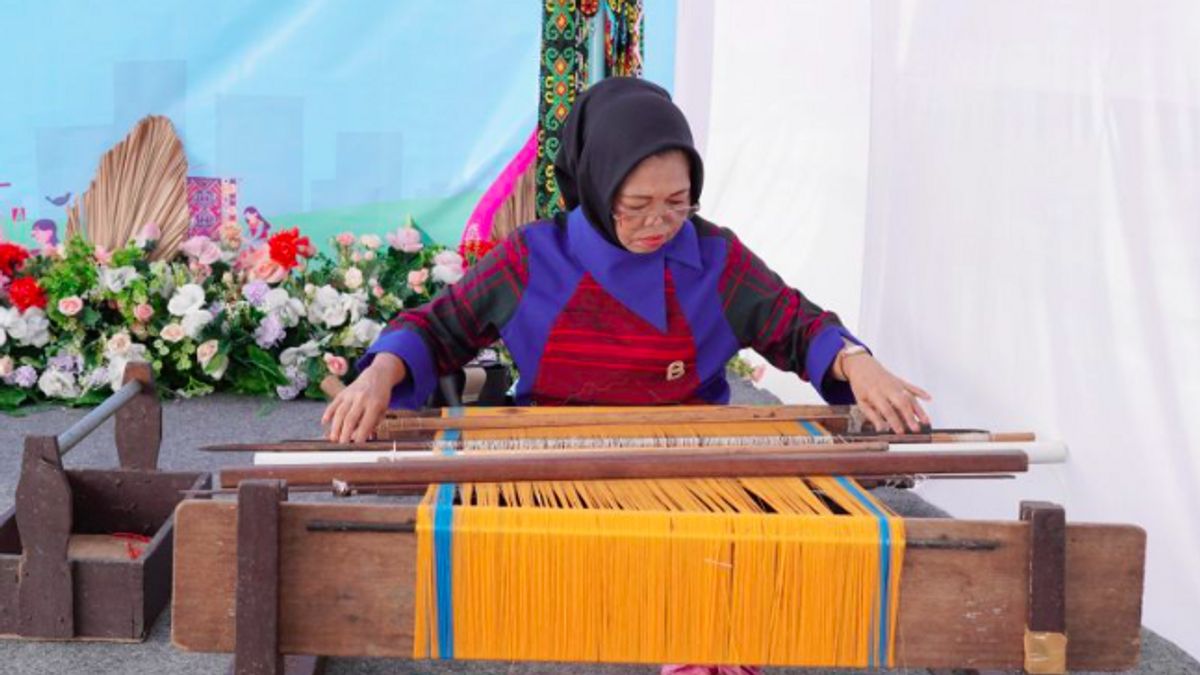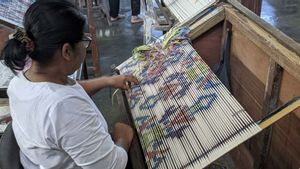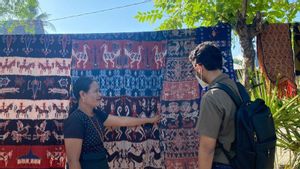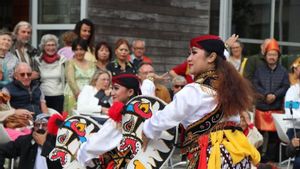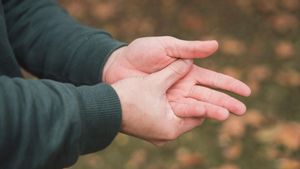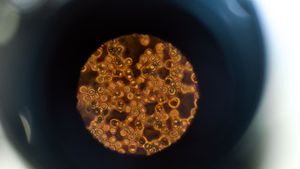JAKARTA - The Tenun Samarinda, one of the cultural heritages of East Kalimantan, has high historical and artistic value that needs to be preserved. However, in the midst of challenges of the times, this traditional weaving production requires support to continue to survive and develop.
Realizing this importance, PLN Energi Primary Indonesia Subholding (PLN EPI) together with its subsidiary PT PLN Energi Gas carried out a social and environmental responsibility program (TJSL) by assisting the Prosperous Joint Business Group (KUB) Padaidi, a manufacturer of Samarinda woven fabrics in East Kalimantan.
In this program, PLN EPI and PT PLN Energi Gas provide various forms of support, including raw materials such as threads and equipment such as sarong cabinets and bead hangers. This assistance is expected to increase productivity and quality of Samarinda woven fabric products.
"This program aims to preserve local culture, improve people's welfare, and support the development of the creative economy in the area," said PLN EPI Corporate Secretary Mamit Setiawan, as quoted by ANTARA.
Mamit added that this initiative is not only focused on the economic aspect but also seeks to create sustainable long-term benefits. "We want to ensure Samarinda woven fabrics are not only culturally sustainable, but also able to compete in the national and international markets," he said.
In addition to raw material support, this program also includes marketing development through e-commerce platforms to expand the reach of Samarinda woven fabric products.
SEE ALSO:
Product branding efforts, such as creating logos and attractive packaging designs, are also carried out to increase the attractiveness and selling value of these products.
Ketua KUB Sejahtera Padalidi, Sumarni, menyampaikan apresiasinya atas program ini, yang dinilai sangat membantu keberlanjutan produksi wen dan kesejahteraan para pembris. " Bantuan ini tidak hanya mendukung produksi, tetapi juga membuka peluang baru untuk memperluas pasar kami," katanya.
The TJSL program also includes training for craftsmen to improve their skills and productivity. With a holistic approach, this program is expected to have a sustainable positive impact on the people of Samarinda and the local economy as a whole.
According to Mamit, this collaboration will continue to be strengthened as part of the company's commitment to environmental, social, and governance (ESG) principles and support the achievement of sustainable development goals (SDGs).
The English, Chinese, Japanese, Arabic, and French versions are automatically generated by the AI. So there may still be inaccuracies in translating, please always see Indonesian as our main language. (system supported by DigitalSiber.id)
